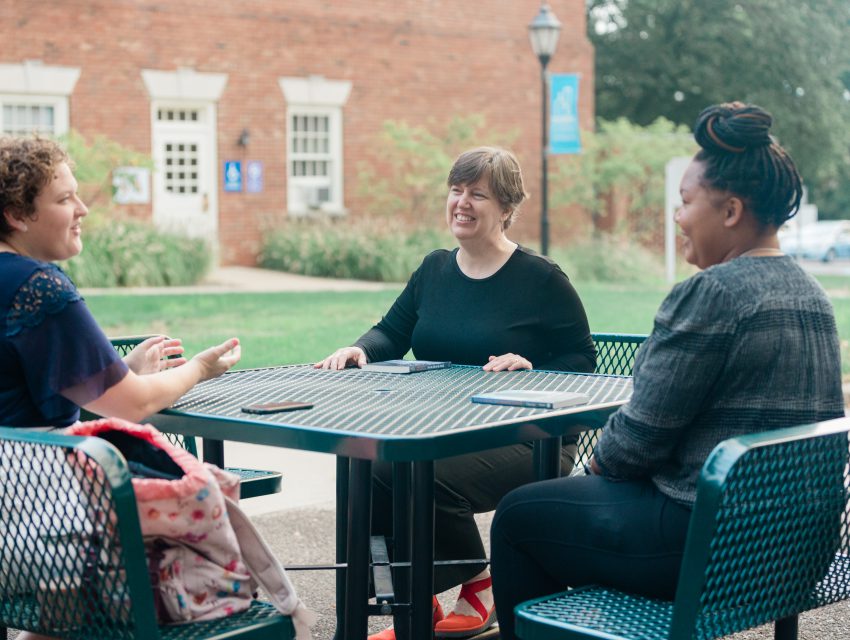Proverbs from PTS Field Education (Part 1 of a 2 part series)

by Barbara J. Blodgett, director of Field Education at Pittsburgh Theological Seminary
Part of being a supervisor in the Pittsburgh Theological Seminary Field Education program is meeting and learning with fellow supervisors. Each supervisor attends two sessions per year. This year, we took those sessions off campus and into spaces that would inspire our thinking about what it means to mentor someone into ministry. The first supervisor session last year, titled “But Can It Be Taught?”, led to the following reflections. In part 2 next week, we’ll discuss the second session, called “Engaging Place and Story.”
“But Can It Be Taught?”
In September 2021, several supervisors and I gathered at Double Dog Studios in Carnegie, Pa., to browse an exhibit of outsider and/or self-taught artists from the Pittsburgh region and then to reflect on how viewing their art inspires us as ministry supervisors. We asked the supervisors: “How did you learn to be a minister?” Some knowledge and skills may have been taught directly; others were probably developed through observation, emulation, study, and practice. Still other skills and knowledge may be self-taught. Supervisors had time to browse the exhibit and then regather as a group to engage questions around what is teachable in ministry, whether anyone is ever truly self-taught, and what the respective roles of the “inside” and “outside” curricula are in becoming a minister.
Seven Proverbs from “But Can It Be Taught?”
Here are a few takeaways from that gathering:
- Like outsider artists, there are both challenges and opportunities to be found in the outsider spaces of ministry. Interim ministers and bi-vocational ministers remind us that serving from outside the regular, formal structures of ministry–like artists who work outside the formal structures of the art world–can enhance one’s creativity and prophetic voice.
- Outsider artists often integrate found objects into their art. Like them, we never know where we might find materials for our work.
- We should never forget that a calling to ministry, like a calling to be an artist, can be heard at any time, even quite late in life.
- Answering a call almost always requires some support. Even self-taught artists have had someone nurturing their creativity. Let us remind members of our communities of the important role they can play in their seminarians’ discernment and development.
- As Christians who believe in the working of the Holy Spirit as our Teacher, we cannot ultimately affirm that ministers are purely self-taught.
- But some things are harder to teach than others! Poise, critical self-awareness, and confidence in one’s potential are some qualities that can be challenging to nurture in students who haven’t already developed them on their own.
- In some cases the best thing we can do is provide space for experiences. Even a small thing like letting our students experience being called “pastor” by someone else goes a long way.
Part 2 (next week): “Engaging Place and Story”


1 thought on ““But Can It Be Taught?””